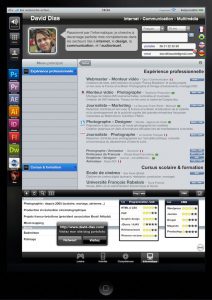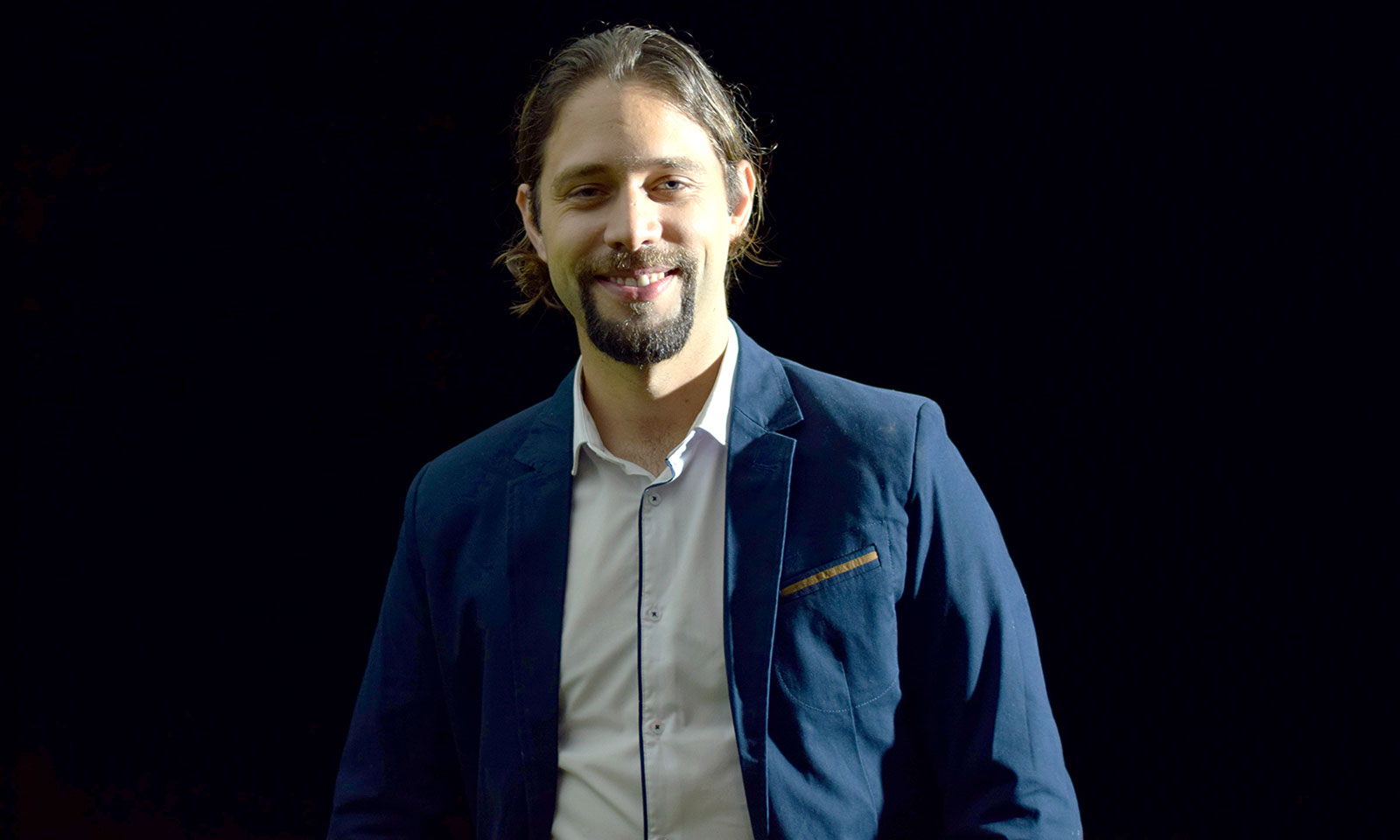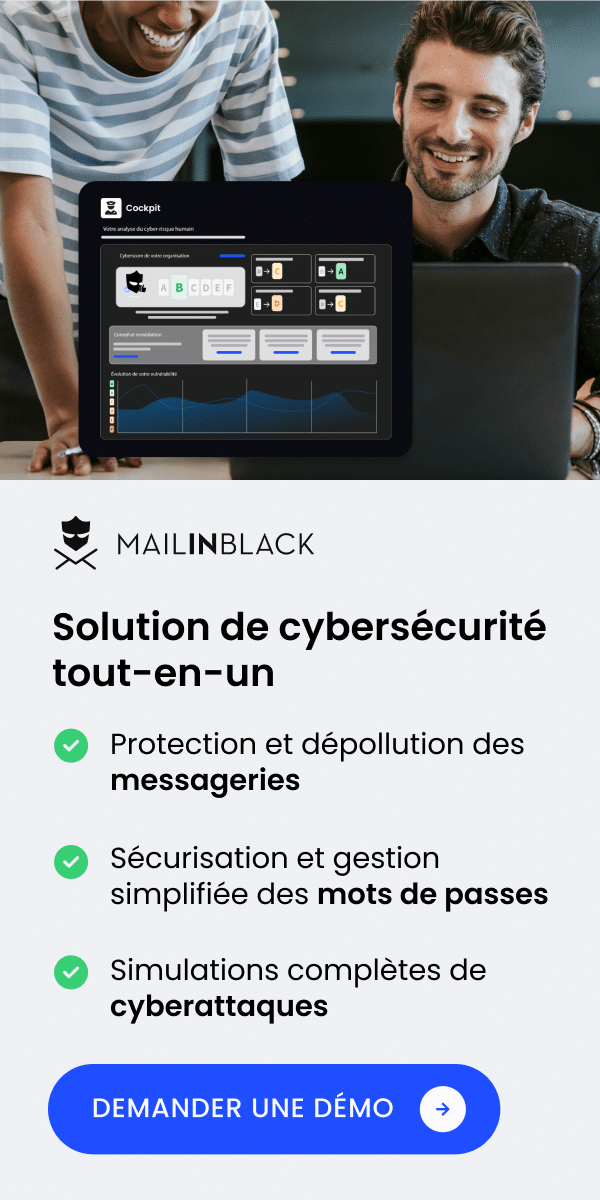Originally from France and aged 32, David is a Front-End architect and manager at Proximity BBDO Indian Ocean. ICT.io gave him the floor to let you discover his career and his job. Discovery.
David, you are a Front-End architect and manager. Can you describe your job?
My job is a mix of Front-End development and web architecture. A Front-End takes care of the visible part of a website. Everything the user sees in their web browser and the direct interactions they can have with a website, a front-end developer uses programming languages to create. I also communicate with creative agencies
with the aim of bringing coherence and the best possible result between the creative idea and its technical realization. I also take care of the 20 Front-End developers that we have at Proximity BBDO Indian Ocean, by accompanying and training them in the profession and in all the fields that it can encompass.
You say you are self-taught: how did you go about training?
Above all, you must have a lot of patience and never give up. Being self-taught requires a huge investment, but the rewards always come with time. I started with the web at the age of 14 when websites were in their infancy. Internet connections were extremely slow, social networks and blogs didn’t exist yet, but there were already many enthusiasts trying to help those who wanted to learn.
Books were the first thing that helped me to learn, I used to read at least one book every two days. Then these last years, blogs, articles on the web, tutorial videos allowed me to learn in almost all the domains related to computer science almost without having to leave my home.
You have to want to keep improving. To me, a developer who doesn’t learn at least one new thing a day is a dying developer.
How do I become a front-end developer?
I tend to say that the first factor is passion, even more so than with some professions. To be a Front-End developer, you have to accept to question yourself every day and to learn every day. In addition to a passion, you must want to acquire a certain culture, a web culture.
It is as if you decided to learn Japanese, but without knowing anything about the culture and history of Japan, without even having the desire to visit the country. A person cannot wish to work in the web, if he/she is not familiar with this world. And very often I meet young people to whom we have not taken the time to explain this.
The academic background in my view can help in some cases, but should never be seen as sufficient. Going to university, graduating and believing you can get a job is a utopia in the web. If you train continuously, if you practice as much as you can, then yes, you will have good chances to find a job and to continue your passion professionally.
Why did you choose Mauritius to practice your profession?
I’d say it was Mauritius that chose me (laughs). I was working at Proximity BBDO Paris for the last few years, and Proximity BBDO Indian Ocean asked me to come on site to be closer to the teams that I was already accompanying remotely. My plan at the time was to move to Canada or the US, but I agreed to delay that plan to help the teams here grow and be self-sufficient.
You are also responsible for a team. Can you describe a day at work?
The days are all very different. I always work on several projects at the same time. I try to divide my time between knowing the progress of the projects, training or helping those who need it and improving our methodologies and workflow. I spend time with some developers, reviewing their code, helping them when they get stuck or showing them how by changing their perspective, you can sometimes save a lot of time in the execution of your tasks.
I make sure there is consistency across all projects. I try to make sure that all the upstream work has been done and that the creative agencies are in line with our technical teams, all with the help of the project managers.
I created starter kits, architectures that allow all projects to have a similar environment. This way, a developer can move from one project to another without having to relearn everything. This saves time and ensures maintainability for the future.
I would sum up my work and my passion as being at the center of finding solutions to digital problems and challenges, while training and helping Front-End developers to progress and become autonomous.
You’ve been in a lot of fields before you got to where you are today. Why did you choose computer science and the web?
I started with computers and the web, and even though I’ve worked in fields like journalism, photography, video editing, I’ve always continued with the web. It was after I had looked at everything I liked that I had to make a final choice. Thanks to the “iPad CV” I made in 2011, I was able to approach web agencies in Paris without having any prior training in IT. My original CV was what got me where I am today.

Computer science and the web are fields of the future, in constant evolution, but which are unavoidable and destined to always evolve. We said that 15 years ago, we still say it and even more today.
In addition to your daily work, do you have any other activities related to the web or computers?
I organize free meetups and workshops for all those who want to learn and progress. Since I am in Mauritius, I was able to create the Front-End developers Mauritius group on Facebook, the NodeSchool workshop and the FreeCode Camp group as well. My wish, while I am still in Mauritius, is really to help a maximum of people, young and old, to adopt a web culture and to progress in this field.
It’s a shame that even though these activities are free and take me time to organize, we have too few people coming to the events. I’ve seen a lot of young people come to interviews looking to learn more, but not taking advantage of those opportunities that didn’t exist before in the Front-End.
There is a real awareness to be made in Mauritius, and as I said in my article ” The real status of web developer’s skills in Mauritius ” on medium.com, the “future must come from individual and collective initiatives”.
Do you plan to evolve in this field or change tack in the years to come?
Change no, always evolve. I love to train people, to see them evolve. But at the same time, I also have to keep up with the frantic pace of web and language evolution. I love UX (User Experience) and UI (User Interface) and I have developed skills in these areas over the last few years. I would say that in the future I would rather be defined as a Front-End User Experience developer, while continuing to train all the people around me.
Do you think that your job is within the reach of all those who share your profile?
Like any profession and passion, not everyone is cut out to be a developer, but I would say that our profession can be within the reach of anyone. For me, it is essential to be well guided from the start. To my regret, especially in Mauritius, we have a lot of young people who go to university for three years without much guidance.
When I get a young person saying they like Front-End, but have no code or examples to show me, it’s a bit like them saying they love bikes, but have never ridden one. There is a huge shortage of developers in the world, and I am sure that many in Mauritius could be excellent developers if they are really guided.



